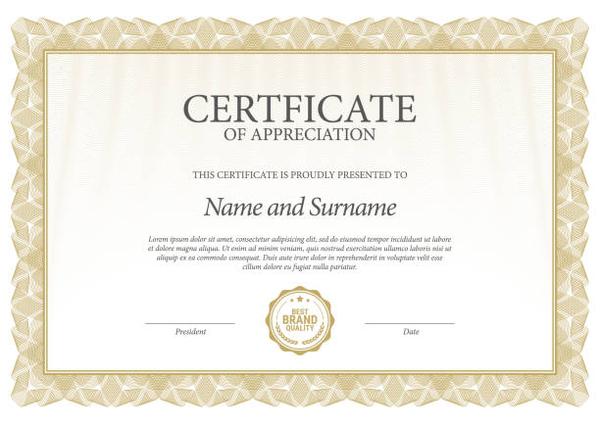Fake Degree Buyers: A Look into the Demographics and Motivations
Many people purchase fake degrees to make it easier in their lives. They can be employed to impress employers, other employees or friends. The practice, however, is illegal and has negative consequences for the general public.
It’s possible to study with the Veblenian theory of economics why people purchase fake degrees. The reason for degrees is to perform ceremonial and instrumental functions. They also confer non-rival rights like capabilities, status and signaling.
Motivations behind buying fake degrees
In today’s society, buying fake diplomas is a regular method. Some individuals choose the illegal route, even though the majority of individuals pursue education through legal methods. Some individuals purchase fake degrees to deceive others about their qualifications for financial gain or career advancement. Many people purchase fake degrees to reduce time and cost.
In certain situations, a fake degree can be used to help overcome difficulties like family or personal issues that might otherwise keep people from reaching their educational goals. https://lambanggiagiare.net/ If a person has highly educated parents, they could put pressure on their child to obtain an education at a university. In these situations, purchasing fake diplomas can be done to satisfy the parents of the child or to maintain their social standing.
In other situations, individuals purchase fake degrees in order to increase their self-esteem or gain a competitive edge. For instance, if a person is in a profession that isn’t easy to obtain an entry-level job without having a degree, a fake degree can provide them with the confidence to be able to apply for jobs. Many people also use fake degrees to inspire them to achieve success. This can be especially crucial for students who have had a difficult time academically.
Fake degree buyers’ profiles
Many of those who buy fake degrees do so for a variety of reasons. Some may attempt to evade employers. Many buy fake degrees in order to enhance their LinkedIn profiles or resumes. Others simply want to get an improved job or progress in their current job. Whatever the motivation this increase in the practice is growing.
In the market for fake degrees around the globe, it is easy to discover fake diplomas issued by universities that aren’t even in existence for master’s, bachelor’s degrees, or even PhDs. These fake institutions usually do not have physical addresses and their faculty pictures are stock images and the accreditation bodies they mention aren’t even there.
Some of the companies connected to these diploma mills offer transcript verification, but it’s difficult to see through their lies. One school affiliated with Axact claimed to offer the service, but it included in its transcript verification letter an address for a PO Box in Arizona.
Gollin suggests that people do their research to reduce the amount fake degrees. He once tracked down an online degree mill that sold fake certificates from Saint Regis University. Gollin suggests that a government-run site could compile a list legitimate universities and alert users when they attempt to access websites that are fake universities. A similar solution would work for currency that is counterfeit He suggests.
Fake degrees and their effect on society
False degrees constitute a multibillion dollar business that can cause a lot of harm. Fake degrees can damage an organization’s image, its processes, and even legal standing. Fake degrees pose a serious issue for academics, however they’ve received little attention despite their importance. This paper aims to fill in this gap employing economic tools such as club theory and the status functions of diplomas in order to analyze the effects of fake degrees. We also explore the implications of a fake diploma that are sold on the market as legitimate ones.
This paper focuses on the rise of fake degrees in the world market and offers a theoretical framework for analyzing the impact they have on society. The paper starts by defining key terms within this context, such as “fake degree” and “diploma-mills”. Then, it provides a brief description of the history behind fake diplomas, and outlines the factors that led to their current growth. It also outlines the advantages and disadvantages of this trend from a financial perspective.
In an attempt to improve their job prospects, a growing number of people buy fake degrees. A few of them may be illegal immigrants or undereducated earners, whereas others have a prestigious education. Media exposes politicians and executives for falsely claiming to be educated and have earned credentials. This leads to the public to lose faith in the institutions that grant these certificates.
Buyers with fake degrees: How to identify them
Although most people are aware that fake degrees can be an issue, the reality is that fake degrees can be hard to detect. This is because the fake degrees are designed to appear as authentic as they can. Therefore, it is crucial to recognize a fake and avoid it at any cost.
Many reasons exist for someone to purchase fake degrees, ranging from inability to pay university fees to a desire for social status. In certain cases it could be a method of getting the job they want. It is crucial to keep in mind that buying a fake diploma could have serious consequences. Fake degrees are dangerous in the fields of engineering and healthcare.
Fake degrees are easy to get. According to George Gollin, a member of the Council for Higher Education Accreditation There are a lot of diploma mills around the world, which sell fake degrees. Gollin is also of the opinion that some universities are unwittingly partners with these businesses.
Fake degrees can be a serious issue in the field of recruitment. An analysis suggests that one-third of employers do not examine a candidate’s academic credentials this is a troubling figure.


